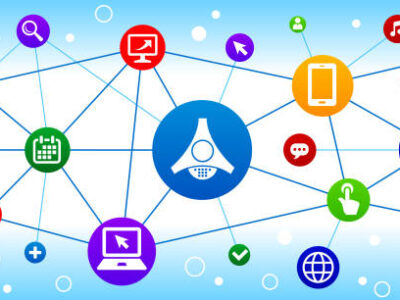In today’s world, helping employees build the right skills is essential for a successful business. A great way to do this is through a reliable employee skills assessment. This process helps employers see their employees’ skill strengths and weaknesses.
By using technology, companies can make this assessment process easier, faster, and more accurate. This makes it possible for businesses to focus on training employees where it’s needed most.
Technology is changing how businesses assess and develop their workforce. From automated tools to data analysis, it ensures they are ready for the future.
Here’s the key list to enhance your employee skills assessment process with advanced technology.
Why Employee Skills Assessment is Important
Assessing employee skills has many benefits. First, it helps leaders understand the different strengths and weaknesses across their teams. Knowing this allows them to plan effective training programs.
Regular skill assessments create a culture of growth. They encourage employees to learn and improve continuously.
Companies that build skills see higher productivity and satisfaction. This is key to long-term success.
Identifying Skill Gaps in the Workforce
One of the main reasons for conducting skills assessments is to spot gaps in skills. Skill gaps are areas where employees may lack certain abilities needed for their roles. If these gaps aren’t addressed, they can slow down company growth.
Businesses can use technology to test specific skills. These include technical know-how, communication, and problem-solving.
With these tools, employers can quickly identify support gaps. They can then plan training sessions to help employees improve in these areas.
For example, many companies use online employee competency tools. They create real-life work scenarios. Employees have to solve problems and make judgments.
These tools test skills and provide immediate feedback. This helps employees learn and grow as they take the test.
Advanced Tools for Skills Assessment
Many advanced tools are available today. They help with effective skills assessments. The most regularly used instruments are:
Learning Management Systems (LMS)
An LMS helps companies organize training, track employee progress, and conduct assessments all in one place. These systems use data to show how departments are performing. This helps leaders make better training decisions.
AI-Powered Assessments
AI, or artificial intelligence, can help with assessments. It can analyze responses and give immediate feedback.
Some AI tools can even adapt questions based on how well someone is performing. This makes the assessment more personalized and helps employees improve more quickly.
360-Degree Feedback Tools
This tool allows employees to receive feedback from coworkers, managers, and even clients. It shows their strengths and weaknesses. It helps find unseen areas for growth.
Simulation Tools
These tools create situations similar to the employee’s actual job to see how they would respond. This helps measure practical skills and makes it easier to assess how well employees can apply what they’ve learned.
Online Skills Tests
Many companies use online tests to assess specific skills, like coding for tech jobs or typing speed for data entry roles. These tests help measure technical abilities quickly and accurately.
How Data Analytics Improves Skills Assessment
Data analytics plays a big role in making skills assessments more effective. By using these assessments, companies can find trends. They can identify common areas where employees may struggle. This data allows leaders to adjust training programs based on real needs.
Analytics helps managers compare team performances across departments. They can see which groups need more support.
For example, if many employees struggle with a software tool, a company might plan extra training sessions for it. Companies can make better decisions by applying these realizations. They can also create training programs that provide real benefits to their employees.
Making Assessments Engaging for Employees
Keeping employees engaged during skills assessments can be tough. Traditional methods can sometimes feel dull. However, by adding interactive elements, companies can make the assessment process more engaging.
For example, gamification is a popular technique. It uses game-like features, like rewards and leaderboards, to motivate employees. When employees are more engaged, they’re more likely to do well in their assessments and take the learning seriously.
Some tests give small rewards for employees who do well or improve their scores. This approach fosters a positive learning environment. It motivates employees to build their skills.
Using a Typing Speed Test as an Example
A typing speed test, sometimes called a WPM test, is one example of a specific skills assessment. This type of test can be especially useful for jobs where fast, accurate typing is necessary, such as data entry or customer support roles.
A WPM test measures both speed and accuracy, helping companies see how quickly their employees can complete typing tasks. When added to a broader skills assessment plan, typing tests can ensure that employees have the basic abilities needed for their roles.
Creating a Culture of Continuous Learning
Using tech in skills tests fosters a culture of learning. This is valuable for any company. A continuous learning culture means employees don’t just take tests once.
They must regularly get feedback, learn new skills, and improve their performance. This type of culture benefits both employees and the business, as it promotes constant growth and adaptation.
Leaders play an important role in promoting this culture. Managers who value skill development and use tests show employees that learning is vital at every level. Companies can boost employee engagement by supporting continuous learning. It makes workers feel valued.
Preparing for the Future of Skills Assessment
The future of skills assessment is all about technology. As tools become more advanced, companies will be able to conduct even more accurate and helpful assessments.
For instance, future tests may use virtual reality. It could simulate complex work situations. This would let employees practice in a safe, virtual space. This approach improves employee skills and keeps businesses competitive in a changing world.
Adapting to Change
Companies must adopt new tech and strategies in their skills tests. It’s important to hear from employees about assessments. Their feedback helps companies improve to meet their needs.
As technology evolves, companies can improve their talent assessment strategies. This will help employees and the organization grow together.
Technology Unlocks Employee Potential
Employee skills assessment using technology unlocks new possibilities for growth and success. Tools like AI tests, games, and skill tests, like WPM, can make the process more engaging and accurate.
A strong skills assessment strategy can boost workforce skills and motivation. Using these digital tools can improve employee development. It will make the business stronger and more agile.
For more technology updates, follow us.
If you want morе еxciting contеnt visit. Globallyviz.com














Comments